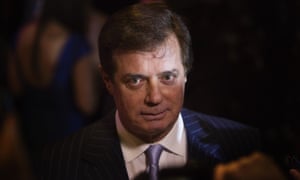
BRET STEPHENS, NY TIMES
Donald Trump ought to be impeached and removed from office. This isn’t what I thought two months ago, when the impeachment inquiry began. I argued that the evidence fell short of the standards of a prosecutable criminal act. I also feared impeachment might ultimately help Trump politically, as it had helped Bill Clinton in 1998. That second worry might still prove true.
But if the congressional testimonies of Marie Yovanovitch, Bill Taylor, Gordon Sondland, Alexander Vindman and especially Fiona Hill make anything clear, it’s that the president’s highest crime isn’t what he tried to do to, or with, Ukraine.
It’s that he’s attempting to turn the United States into Ukraine. The judgment Congress has to make is whether the American people should be willing, actively or passively, to go along with it.
I’ve followed Ukrainian politics fairly closely since 1999, when I joined the staff of The Wall Street Journal Europe. It has consistent themes that should sound familiar to American ears.

The first theme is the criminalization of political differences. Years before Trump led his followers in “Lock Her Up” chants against Hillary Clinton, then-Ukrainian President Viktor Yanukovych did exactly that against his own political rival, Yulia Tymoshenko, who was sentenced to seven years in prison on a variety of byzantine charges after she had narrowly lost the 2010 election.
She spent three years in prison before her release during the 2014 Maidan Revolution. Key to Yanukovych’s efforts to discredit Tymoshenko was — who else? — Paul Manafort.
A second theme is the use of political office as a shield against criminal prosecution and as a vehicle for personal and familial enrichment. Why have so many of Ukraine’s oligarchs — including Burisma Holdings founder Mykola Zlochevsky — also served as government ministers? Simple: Because, until recently, it shielded them from criminal prosecution thanks to parliamentary immunity, while also providing them with the means to use government power for their own benefit.
The third theme is what one might call the netherworldization of political life, in which conspiracy theories abound, off-stage figures yield outsized influence, and channels of formal authority are disconnected from the real centers of power.

This reality came vividly to light in 2016, when a parliamentary effort to vote “no confidence” in the government of then-Prime Minister Arseniy Yatsenyuk unexpectedly collapsed, thanks to the usual string-pulling from the country’s wealthiest power brokers. As Ukrainian political commentator Maxim Eristavi noted at the time, in Ukraine “There are no party lines, no real policy debates, no ideological clashes: just cold-hearted vested interests and short-term alliances between various oligarchic groups.”

The fourth theme is covert Russian interference, usually facilitated by local actors.
Ukraine offers the world’s most extreme example of this kind of interference (nearby Georgia is a close second), since large parts of the country have been seized outright by Russia and its proxies. But long before the Kremlin’s “little green men” arrived in Crimea in 2014, Russia and its agents were using every dirty trick at their disposal, from poisoning a future Ukrainian president with dioxin to poisoning the media landscape with disinformation. Too often, it worked, whether because its victims were suggestible, corrupt, fearful or simply not paying attention.
That last point was also made by Fiona Hill in her testimony on Thursday, where she warned members of the House Intelligence Committee that they ran the risk of themselves falling victims to “politically driven falsehoods,” regarding a bogus theory about Ukrainian political interference, “that so clearly advance Russian interests.”
Yet the person who is both the principal consumer and purveyor of those falsehoods is the president of the United States, just as he has been a purveyor of so many other conspiracy theories. Even now, this should astound us.
It doesn’t, because we’ve been living in a country undergoing its own dismal process of Ukrainianization: of treating fictions as facts; and propaganda as journalism; and political opponents as criminals; and political offices as business ventures; and personal relatives as diplomatic representatives; and legal fixers as shadow cabinet members; and extortion as foreign policy; and toadyism as patriotism; and fellow citizens as “human scum”; and mortal enemies as long-lost friends — and then acting as if all this is perfectly normal. This is more than a high crime. It’s a clear and present danger to our security, institutions, and moral hygiene.
It’s to the immense credit of ordinary Ukrainians that, in fighting Russian aggression in the field and fighting for better governance in Kyiv, they have shown themselves worthy of the world’s support. And it’s to the enduring shame of the Republican Party that they have been willing to debase our political standards to the old Ukrainian level just when Ukrainians are trying to rise to our former level.
The one way to stop this is to make every effort to remove Trump from office. It shouldn’t have to wait a year.